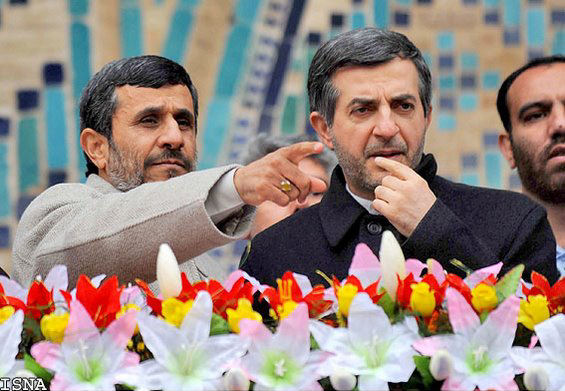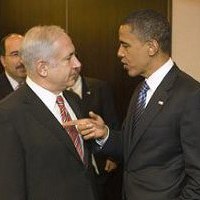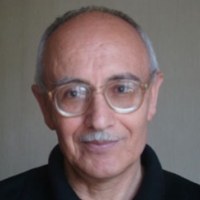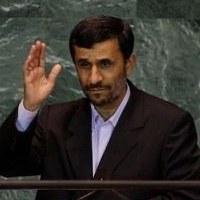![]()
Sun, May 29, 2011 | The Meir Amit Intelligence and Terrorism Information Center
Iran: “Traditional conservatives” vs. “deviant faction”
Last weekend Basij chief Mohammad-Reza Naqdi announced that, over the next several months, the public would be given new, detailed information on the activity of the “deviant faction”, a term used to refer to those affiliated with Esfandiar Rahim Masha’i, President Ahmadinejad’s controversial advisor.
Speaking at a press conference, Naqdi said that the “deviant faction” is following in the footsteps of such terrorist organizations as the oppositionist Mojahedin-e Khalq, which attempt to undermine the unity of the regime leaders, having understood that the terrorist attacks they have carried out throughout the years have had opposite results and strengthened Iran’s national unity (Fars, May 21).
Intelligence minister Heydar Moslehi, whom President Ahmadinejad was forced to reinstate under orders from the Supreme Leader after announcing his dismissal, said this week that one of the most important tasks facing the Intelligence Ministry is fighting the “deviant factions” that operate in the country (Mehr, May 21).
Meanwhile, clerics affiliated with the conservative bloc have also stepped up their remarks against the “deviant faction”. In his last sermon, Ayatollah Seyyed Mohammad Sa’idi, the Friday prayer leader in the city of Qom, warned the faction’s members that if they do not cease their plotting, they will end up like Iran’s former president Abolhassan Banisadr (impeached in June 1981), the Mojahedin-e Khalq organization, and the “leaders of incitement” (a term used to refer to the reformist opposition leaders).
Sa’idi noted that while many leaders of the “deviant faction” consider themselves as supporters of the clerics, their closed meetings and actions reveal that they have never supported the clerics. They should know, the senior cleric said, that the Iranian people have won numerous victories over the past 30 years thanks to their support of the rule of the religious jurisprudent (Mehr, May 20).
The ultra-conservative cleric Mohammad Taqi Mesbah Yazdi also spoke about the activity of the “deviant faction”, warning about its attempt to take over the presidency in the coming 2013 elections. The faction’s objective is to spread the idea that all the accomplishments made in the past six years (under President Ahmadinejad) should be credited to Rahim Masha’i, that he is the world’s greatest strategist, and that he should therefore become the next president. At a meeting with Rahim Safavi, the Supreme Leader’s advisor and former chief of the Revolutionary Guards, Mesbah Yazdi warned about the continuing activity of the “deviant faction” in society, alleging it was aimed to undermine the status of the clerics and the “rule of the religious jurisprudent” (Fars, May 19).
This week the criticism against the “deviant faction” has also been taken up by Ahmadinejad’s family. In an interview to Fars News Agency, Mehdi Khorshidi, Ahmadinejad’s son-in-law and secretary of the President’s Council of Advisors, said that the “deviant faction” is trying to broaden its influence in society through the use of government resources and establishment of a social foundation. He said that the faction had started to emerge in the early days of President Ahmadinejad’s term, and that its views were exposed gradually. Those belonging to the faction ignore the clerics and speak freely on religious issues even though they lack any kind of religious training or knowledge. Khorshidi added that Masha’i had endeavored to remove people from President Ahmadinejad’s entourage to isolate him and provide himself with the opportunity to realize his own objectives while hiding behind a person who works hard to serve his people.
The president’s son-in-law warned that the existence of this faction—which is becoming more and more powerful, being involved with financial corruption and metaphysical activities—amongst the Iranian leadership poses a real threat to the regime. According to Khorshidi, the faction is trying to gain strength by taking control of the executive branch and infiltrating the sphere of economy to broaden and entrench its deviant thought in society (Fars, May 23).
Recent weeks have seen greatly increased activity by the traditional-conservative bloc against the Masha’i-led “deviant faction”. Last week it was reported that 25 Iranian individuals affiliated with the faction, including some of Masha’i’s close associates, had been arrested on various charges, including involvement in the distribution of the messianic film “The Reappearance [of the 12th Imam] is Imminent”, which has recently provoked a strong political and public controversy (Alef, May 18).
It was reported this week that one of the detainees, Hojjat-ol-Eslam Abbas Amiri-Far, attempted to commit suicide in prison (Jaras, May 22). Amiri-Far, the former head of the Cultural Committee in the president’s office who is also considered one of Masha’i’s close associates, has recently strongly condemned Masha’i’s critics and expressed his confidence in Masha’i’s ability to become president.
In addition, more and more voices are demanding that Masha’i himself be arrested. Last week conservative Majles member Hamid Rasa’i called to arrest Masha’i and his supporters for their subversive political activity and involvement in financial corruption. In an interview to Fars News Agency, Rasa’i said that in addition to wanting to become president, Masha’i is on a mission to derail the Islamic regime. Masha’i believes, according to Rasa’i, that the Supreme Leader has to become a strictly ceremonial figure. He also seeks to exclude the clerics from politics and replace religious Islamic values with national values. Rasa’i accused Masha’i of using President Ahmadinejad to achieve his objectives. Masha’i and the reformist opposition share common goals, Rasa’i said, the most important of which are weakening the status of the religious jurisprudent and weakening the status of the clerics (Fars, May 20).
Ya Lesarat, a weekly affiliated with the radical left-wing organization Ansar Hezbollah, also called for Masha’i’s arrest last week. In an editorial by Qasem Ravanbakhsh, one of Ayatollah Mesbah Yazdi’s students, the cleric warned that Masha’i is an extremely dangerous person who may precipitate the appearance of a new sect that rejects the rule of the religious jurisprudent and preaches a direct connection with the Vanished Imam—a connection that does not go through the religious jurisprudent (the Supreme Leader). He called on the security forces to gather information on the activity of the faction affiliated with Masha’i and take the necessary measures to deal with the threat (Saham News, May 19).
This week Hamid Baqa’i, the vice president for executive affairs, admitted that the civil service tribunal had recently banned him from public service for a period of four years for offenses he allegedly committed as head of the Cultural Heritage and Tourism Organization. Baqa’i, considered one of Masha’i’s confidants, added, however, that the decision is not final, and that he intends to file an appeal to court (Fars, May 21).
In addition, Masha’i’s supporters are increasingly accused of such issues as economic and financial corruption, as well as collaboration with elements in the West. Majles member Hossein Fada’i even accused Masha’i’s supporters of having contact with the U.S. and Western intelligence services. Speaking at a conference held in the city of Mashhad, Fada’i claimed that activists belonging to the “deviant faction” are seeking to gain the majority of Majles seats to take over key economic positions. He accused the faction’s activists of preferring the humanistic approach over the Islamic approach and advocating an Islam without clerics. After the enemies of Islam failed to achieve their objectives in the riots that broke out following the 2009 presidential elections, they are now looking for another way to do it, Fada’i claimed (Mehr, May 18).



 RSS
RSS











Latest Comments
Hello Mike, Thank you for your positive feedback to the article. I felt there wasn’t too much critical analysis of ...
Thanks for this considered and well constructed article. A follow up article on the manner in which the editorial contro...
THE CLUELESSNESS OF CLAIMING THAT OBAMA'S MIDDLE EAST POLICIES WERE A FAILURE CANNOT BE FURTHER FROM THE TRUTH, WHAT THE...
As long as Obama is the president of the usa do not trust the us government......
Thank you for an good read....